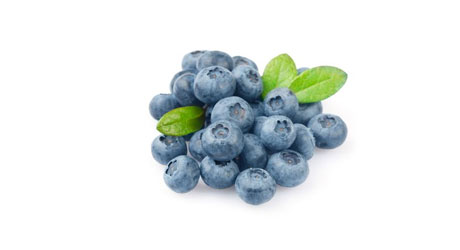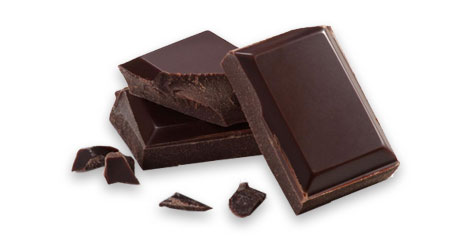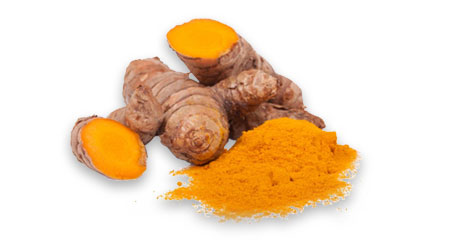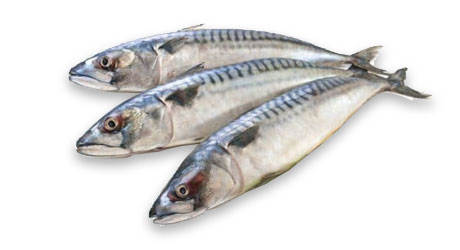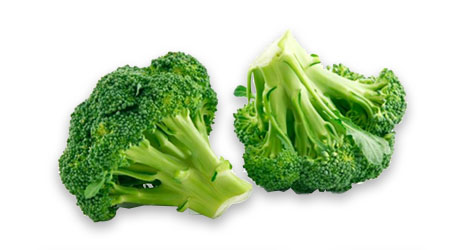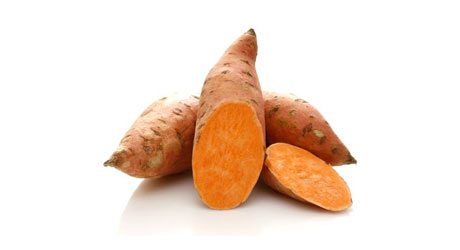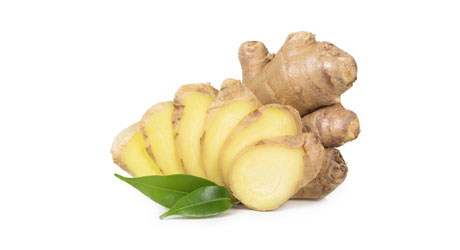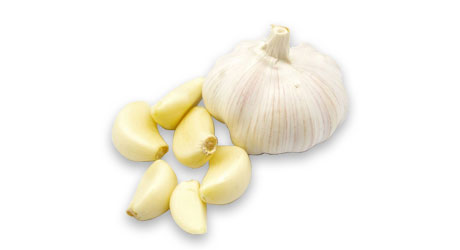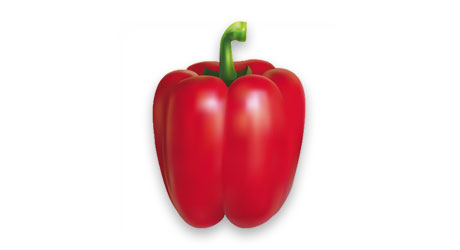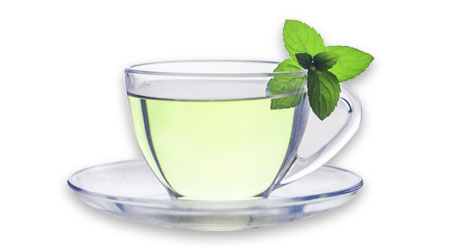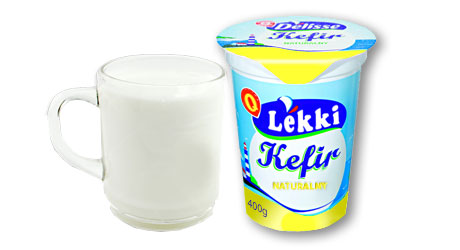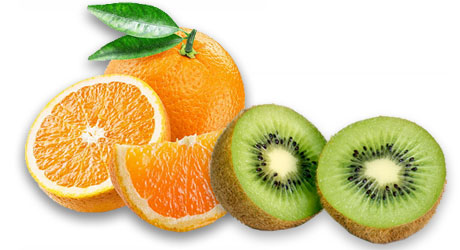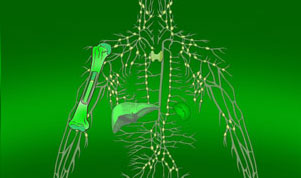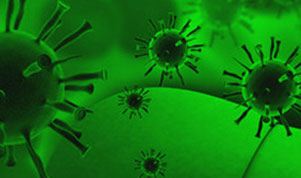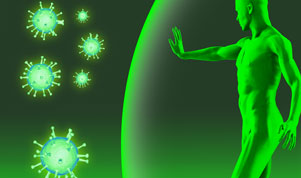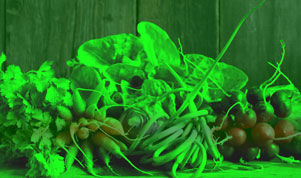Immunologist Advises
"To vaccinate or not to vaccinate - that is the question"

There can only be one answer: W E M U S T V A C C I N A T E ! The baby is born with innate immunity, known as primary immunity. Unfortunately, these disease-protecting antibodies, given to the baby by the mother, are only sufficient for the first three months after birth. Thereafter, until the baby is nine months old, the immune system becomes weaker and weaker. It is only just learning to recognise the enemy, i.e. viruses and bacteria, among others, and to produce the appropriate weapon against them - antibodies. Thanks to vaccines, it learns faster and more effectively.
A vaccine - is nothing more than weakened or dead pathogenic microorganisms introduced into the body, provoking the immune system to produce antibodies. It is a training that prepares the body to immediately recognise germs and send out an army of antibodies against them. This army will either defend the child against infection or at least decisively mitigate its course. In order for acquired immunity to last for many years, it is necessary to receive so-called booster doses of vaccines.
Vaccinations are divided into mandatory vaccinations, carried out in accordance with the so-called vaccination calendar, and non-mandatory vaccinations, but recommended in specific health situations. The latter include vaccination against influenza, meningococci, pneumococci, vaccination against hepatitis B, vaccination against HPV (Human Papilloma Virus) to protect against cervical cancer, vaccination against tick-borne diseases and, last but not least, various vaccinations when travelling to tropical countries.

More about vaccination
This is such an important topic that it cannot be contained in one or two paragraphs. The increasing amount of false information about childhood immunisation appearing in the public space, including in the media, has specialists concerned. Decisive action must be taken to prevent the dissemination of content that can harm children's health. This topic needs to be explored further.
The Anti-Vax Movement Isn’t Going Away. We Must Adapt to It!
By Mark Christopher Navin and Katie Attwell
September 7, 2023 7:00 AM EDT
Navin, PhD, HEC-C, is Professor and Chair of Philosophy at Oakland University (Rochester, MI) and Clinical Ethicist at Corewell Health. His research is primarily in clinical ethics and ethics in public health. Attwell, PhD, is an Associate Professor in Public Policy at the University of Western Australia, where she leads VaxPolLab, and she is an Honorary Fellow of Wesfarmers Centre of Vaccines and Infectious Diseases at Telethon Kids Institute. Her research focuses on vaccination social science and policy. They are authors of the book
America's New Vaccine Wars: California and the Politics of Mandates
America’s immunization policies are facing a bleak future. Political polarization about vaccine policies is likely to cause outbreaks of previously controlled infectious diseases. If we cannot prevent these disasters, we should pivot our focus towards managing them.
Resistance to vaccination is not a new problem, but the COVID-19 pandemic exacerbated it. It should be clear by now that neither persuasion nor coercion is sufficient to change the minds or the behavior of people who are determined to refuse vaccines. Education and research cannot defeat coordinated misinformation. And government efforts – at federal, state, and local levels—are stymied by a combination of inadequate power, insufficient political will, and a lack of perceived legitimacy by vaccine refusers. One of America’s core lessons from the COVID-19 pandemic is that a heavy-handed response to vaccine refusal can make things worse.
Time Magazine – If you want read more → The Anti-Vax Movement Isn’t Going Away. We Must Adapt to It and How the Anti-Vax Movement Is Taking Over the Right
USA: Mass vaccination after measles outbreak

Hundreds of people were vaccinated within two days of a measles outbreak in New York State. A state of emergency has been declared.
More than 500 people have already registered for vaccination, said Ed Day of Rockland County on CNBC. Rockland County declared a state of emergency after reporting dozens of measles cases.
Unvaccinated children and adolescents cannot stay in public places or go to school. According to the administration chief, the goal is to vaccinate at least 93 percent of the population living in the state.
The World Health Organization (WHO) recently declared that vaccine rejection is one of the top 10 global health threats.
It is believed that the reason for the sharp increase in measles cases in industrialized countries is the refusal to vaccinate. The anti-vaccination movement is spreading in many rich countries. Refusal to vaccinate threatens to undermine successes in the fight to eradicate measles.
The federal government is currently examining whether to require mandatory vaccination of children against measles. A state of emergency has been declared in Rockland County.
In other countries, including Europe, the number of measles cases has been increasing in recent years. Particularly rapid growth was recorded in Ukraine and the Philippines.
NHS Vaccination Schedule
Find out about vaccinations for babies, children and adults, including why they're important and how to get them.
|
NHS vaccinations and when to have them Check the NHS vaccination schedule to find out what vaccines are recommended for you or your child |
|
Why vaccination is important and the safest way to protect yourself Find out how vaccines work, what they contain and common side effects |
|
Booking your child's vaccination appointment Find out how to book vaccination appointments for your child |
Advice about how to help your child's vaccination appointment go smoothly and what to expect afterwards |
|
|
Advice about vaccinations during pregnancy, including recommended vaccines such as the whooping cough vaccine |
Advice about getting vaccinated before travelling abroad and information about common travel vaccines such as the yellow fever vaccine |
|
|
For children aged 3 years, 4 months old to help protect against 4 serious illnesses |
For babies when they're 8, 12 and 16 weeks old to help protect against 6 serious illnesses |
|
|
BCG vaccine for tuberculosis (TB) For babies, children and adults at higher risk of getting tuberculosis (TB) |
For people in close contact with someone at a higher risk of getting seriously ill from chickenpox |
|
|
For people at higher risk from COVID-19, including adults aged 65 and over and people with certain health conditions |
For people at higher risk from flu, including adults aged 65 and over and people with certain health conditions |
|
Vaccination and immuno-supplements
Mama 3-latka pyta, czy może mu podawać preparat a wzmocnienie odporności np. immulinę, w sytuacji gdy synek właśnie otrzymał szczepienie przeciwko WZW-A (wirusowemu zapaleniu wątroby typu A)?
Odpowiedź: Wspomaganie naturalnej (wrodzonej) odporności organizmu ma znaczenie. To właśnie dobra naturalna odporność organizmu decyduje o skuteczności i bezpieczeństwie szczepień. Dlatego nie tylko można, ale warto podawać taki immuno-suplement jak immulina wszystkim osobom (również dzieciom) przed i w czasie szczepienia.
Jak najskuteczniej możemy wzmocnić odporność?
To nie jest dobrze postawione pytanie. W zasadzie wzmacniać można jedynie osłabioną odporność. Funkcjonującej w 100% prawidłowo odporności wzmocnić nie możemy. Nie można mieć na przykład 110% czy 120% odporności. Ale nigdy do końca nie wiemy jaka jest ta nasza odporność. Dlatego stosowanie preparatów, które "gimnastykują" naszą odporność i przygotowują ją do działania, na wypadek pojawienia się zagrożenia, jest bardzo pożyteczne.
W wielu sytuacjach możemy stwierdzić, że nasza odporność nie funkcjonuje idealnie. Są to sytuacje nawracających infekcji, przewlekłych infekcji, infekcji oportunistycznych, czyli wywołanych przez patogeny, które normalnie (gdy mamy dobrą odporność) nam nie zagrażają.
Warto zapoznać się z treścią w zakładkach:
→ Niedobory odporności
→ Jak dbać o odporność
Pediatrician advises

Hartowanie organizmu dziecka
Poza mądrym dbaniem o odporność dziecka (szczepienia ochronne, immuno-suplementy w diecie), warto dodatkowo hartować dziecko, bo organizm przyzwyczajony do zmian temperatury łatwiej zniesie jesienne chłody. Zahartowane niemowlę będzie też prawdopodobnie chorować rzadziej (choć wszystko jest kwestią indywidualną). Hartować możesz już trzy-, czteromiesięcznego smyka, choć nie wszystkie metody są teraz wskazane. Te opisane poniżej możesz zastosować z czystym sumieniem.
CODZIENNE SPACERY
Najprostszym i najprzyjemniejszym chyba sposobem hartowania malca są codzienne spacery z dzieckiem. Metoda dostępna dla każdego i przynosząca korzyści nie tylko niemowlęciu, ale i mamie. Dzięki spacerowaniu nie tylko będziesz dotleniona i zrelaksowana, lecz także szybciej wrócisz do sylwetki sprzed ciąży. A i korzyści dla zdrowia dziecka są wymierne. Malec przebywający na dworze przynajmniej dwie godziny dziennie będzie chorował rzadziej niż ten, który całe dnie spędza w łóżeczku. Podczas spaceru do komórek dociera więcej tlenu, zaś układ odpornościowy produkuje więcej białych krwinek odpowiadających za walkę z drobnoustrojami. Na dworze organizm styka się też z rozmaitymi wirusami, bakteriami i grzybami, ucząc się na nie reagować, poza tym przyzwyczaja się do nagłej zmiany temperatury, co będzie miało znaczenie za kilka miesięcy, kiedy zrobi się chłodniej. Wreszcie – świeże powietrze nawilża śluzówkę nosa, dzięki czemu sprawniej chroni ona drogi oddechowe przed drobnoustrojami. Poza tym, co nie jest bez znaczenia, pod wpływem słońca w skórze wytwarza się witamina D, ważna nie tylko dla rozwoju kości, ale też dla układu odpornościowego. Specjaliści zalecają, by niemowlęta były na dworze przynajmniej przez dwie godziny dziennie. Z maluszkiem możesz wychodzić nawet wtedy, gdy jest lekko przeziębiony – przeciwwskazaniem do spaceru jest silny kaszel i podwyższona temperatura. Najlepsze miejsca na spacer to: park, las, skwer czy zaciszna ulica. Unikaj centrów handlowych i zatłoczonych arterii – taki spacer nie tylko nie przynosi korzyści, ale jest dla dziecka szkodliwy.
Unikaj przegrzewania dziecka
Przegrzewanie dziecka sprawia, że niemowlę często choruje. Jedną z najczęstszych przyczyn nawracających przeziębień jest to, że organizm malca nie potrafi dostosowywać się do nagłych zmian temperatury. A nie potrafi nie tylko dlatego, że jest niedojrzały – również z tego powodu, że dziecko bardzo często jest zbyt ciepło ubrane. Mamy, dopingowane przez babcie (a czasem z własnej inicjatywy), wkładają niemowlętom kilka warstw odzieży, dodatkowo przykrywając kocykiem. Tymczasem maluch ubrany zbyt ciepło ma niesprawny system termoregulacji, przez co źle znosi zmiany temperatury, szybko marznie i częściej choruje. Na dworze dziecko, które jeszcze nie chodzi, powinno mieć na sobie o jedną warstwę ubrania więcej niż rodzice. Najlepiej ubrać malucha na cebulkę, by można było zdjąć w razie potrzeby jedną warstwę. Co jakiś czas trzeba też sprawdzić, czy dziecku nie jest za gorąco bądź za zimno, dotykając jego karku (jeśli jest chłodny, to znak, że trzeba malca dodatkowo czymś okryć, jeśli rozgrzany – zdjąć jedną warstwę odzieży). odpornościowe pracują gorzej. Poza tym wysoka temperatura wysusza powietrze w pomieszczeniu, przez co śluzówki w buzi i nosku malca wysychają i nie są już tak skuteczną tarczą ochronną przeciwko mikrobom. Warto więc zadbać o to, by temperatura w otoczeniu niemowlęcia nie przekraczała 19–22ºC. W sezonie grzewczym, a także w wyjątkowo upalne letnie dni, oprócz wietrzenia konieczne jest nawilżanie powietrza, co również korzystnie wpływa na odporność – ma to związek z procesami, jakie zachodzą w nosku malca. Znajdująca się w nim błona śluzowa wytwarza śluz, na którym osadzają się wirusy i bakterie, wdychane wraz z powietrzem. Śluz ten jest następnie transportowany na zewnątrz noska za pomocą milionów rzęsek. Ich ruchy ustają jednak, gdy wilgotność powietrza w pomieszczeniu spada poniżej 40 proc. Gdy wydzielina nie jest usuwana, mikroby mnożą się i atakują organizm. Latem powietrze można nawilżać za pomocą specjalnego nawilżacza, a zimą po prostu powiesić na grzejniku mokry ręcznik.
Przestrzegaj właściwej diety
To co sami jemy i to co dajemy do jedzenia naszym dzieciom ma istotny wpływ na funkcjonowanie układu odporności. Na sąsiedniej szpalcie wymieniamy (za innymi autorami) szereg pokarmów, które mają wpływ a układ odporności. I chociaż wymieniliśmy sporą liczbę rozmaitych pokarmów, to przedstawiona lista nie wyczerpuje całego zagadnienia. Zaś nasze dzieci nie zawsze chcą jeść to co jest dobre dla ich zdrowia. Pod uwagę należy wziąć jeszcze wiele innych pokarmów żeby wymienić tylko miód i mleczko pszczele, naturalny rosół drobiowy, drożdże, spirulinę i wiele, wiele innych.
Należy pamiętać, że dobre odżywienie z uwzględnieniem witamin, składników mineralnych, białek, nienasyconych kwasów tłuszczowych jest warunkiem niezbędnym dobrego zdrowia, a co za tym idzie dobrze funkcjonującej odporności. Do tego dochodzi jeszcze żywność probiotyczna oraz żywność prebiotyczna.
► Żywność probiotyczna to taka, która dostarcza tzw. probiotyki z greki "pro bios" czyli dla życia. Według definicji FAO/WHO probiotyki to "żywe drobnoustroje, które podane w odpowiedniej ilości wywierają korzystny wpływ na zdrowie gospodarza".
► Żywność prebiotyczna, to taka, która wprowadza do pożywienia prebiotyki, czyli składniki pokarmowe w celu pobudzania rozwoju prawidłowej flory jelit i poprawiająca w ten sposób zdrowie.
Zadbaj o zdrowy sen
Nie ma wątpliwości, że odpowiednia ilość i jakość snu wpływa na odporność zarówno dzieci jak i dorosłych. Potwierdzają to liczne badania i obserwacje kliniczne. Sen i dobowy rytm snu i czuwania są istotnymi regulatorami procesów odpornościowych → Sleep and immune function. Podstawą tego jest dwukierunkowe oddziaływanie pomiędzy centralnym układem nerwowym i układem odporności za pośrednictwem współdzielonych substancji sygnałowych (neurotransmiterów, hormonów, cytokin) i bezpośredniego unerwienia struktur układu odporności przez autonomiczny układ nerwowy.
Niedobór snu ma istotny szkodliwy wpływ na układ odporności. Znaczenie snu dla układu odporności potwierdza m.in. obserwacja uczniów, którzy zachorowali, gdy kosztem snu przygotowywali się do egzaminów. Kiepski sen wiąże się ze gorszą funkcją układu odporności i zmniejszeniem liczby komórek układu odporności (komórek NK), które zwalczają drobnoustroje.
Take care of your child's emotional well-being
Affect and emotions are an essential part of the process of our body's interaction with various stimuli. The immune response, like affect (i.e. a form of emotional expression), is a means by which the body interacts with the external environment. Affect and emotions are an essential part of the body's process of interacting with various stimuli. The immune response, like affect (i.e. a form of emotional expression), is a means by which the body interacts with the external environment. Thanks to immunological and emotional reactions, we can distinguish between what is good for us/what we like and what is harmful for us/what we don't like, in order to counteract a wide range of challenges and be able to adapt to the environment in which we live. Recent compelling evidence shows that the emotional system and the immune system share more than just similar functions. This has been presented in the paper → Affective immunology: where emotions and the immune response converge. Thanks to the emotional and immunological response, we learn to distinguish between what we like and what we do not like, to counteract a broad range of challenges, and to adjust to the environment we are living in. Recent compelling evidence has shown that the emotional and immunological systems share more than a similarity of functions. This review article will discuss the crosstalk between these two systems and the need for a new scientific area of research called affective immunology. Research in this field will allow a better understanding and appreciation of the immunological basis of mental disorders and the emotional side of immune diseases.
Other topics related to toughening the child
When child toughening is not recommended? Zasady są podobne u dzieci i u dorosłych. Hartujemy tylko osoby zdrowe. Hartowanie jest wykluczone w okresie przeziębienia, grypy lub jakiejkolwiek infekcji powodującej osłabienie organizmu. Istnieją również charakterystyczne przeciwwskazania do krioterapii, które wykluczają również inne intensywne sposoby hartowania, takie jak na przykład masaż lodem, o którym poniżej.
Hygiene may affect the child's immunity. Zarówno brak jak i nadmiar higieny może być szkodliwy. Jeśli nie będziesz sterylizować butelek i smoczków ani starannie myć rąk (swoich i dziecka), może to grozić zakażeniem przewodu pokarmowego dziecka. Biegunki zaś zubożają naturalną florę bakteryjną organizmu malca, przez co jest on bardziej podatny na infekcje. Z drugiej zaś strony utrzymywanie dziecka w sterylnych warunkach prowadzi do eliminacji kontaktu z drobnoustrojami i w konsekwencji osłabieniem lub nawet zanikiem elementów układu odporności przygotowanych do walki z drobnoustrojami.
Missuse of antibiotics may affect the child's immunity. Ich nadużywanie obniża odporność, gdyż antybiotyk unieszkodliwia nie tylko bakterie chorobotwórcze, ale i te, które chronią przed nimi organizm. W efekcie organizm, choć wyleczony, jest osłabiony i smyk szybko może złapać kolejną infekcję. By odbudować florę bakteryjną, trzeba dziecku podawać probiotyki przez przynajmniej dwa tygodnie po zakończeniu kuracji antybiotykiem.
Quick response to minor infections. Zamiast czekać na rozwinięcie się infekcji na dobre, to warto działać już przy pierwszych symptomach! Gdy zaczyna się katar, najlepiej jest zacząć działać od razu! Dodać do kąpieli olejki aromatyczne (np. sosnowy, eukaliptusowy). Warto stosować preparaty do aromatoterapii np. maść majerankową, olejek olbas, wick vaporub i inne. Można zrobić syrop z cebuli, cytryny i miodu lub zastosować wiosna przygotowany syrop sosnowy. Takie postępowanie zmniejszy objawy przeziębienia i skróci jego czas. Warto podać naturalne preparaty, np. Immulinę plus, która m. in. dostarczy naturalną witaminę C, rutozydy i jony cynku. Nic w 100 % nie ustrzeże nas przed chorobami, ale poprzez powyższe działania możemy zminimalizować problem do minimum.





